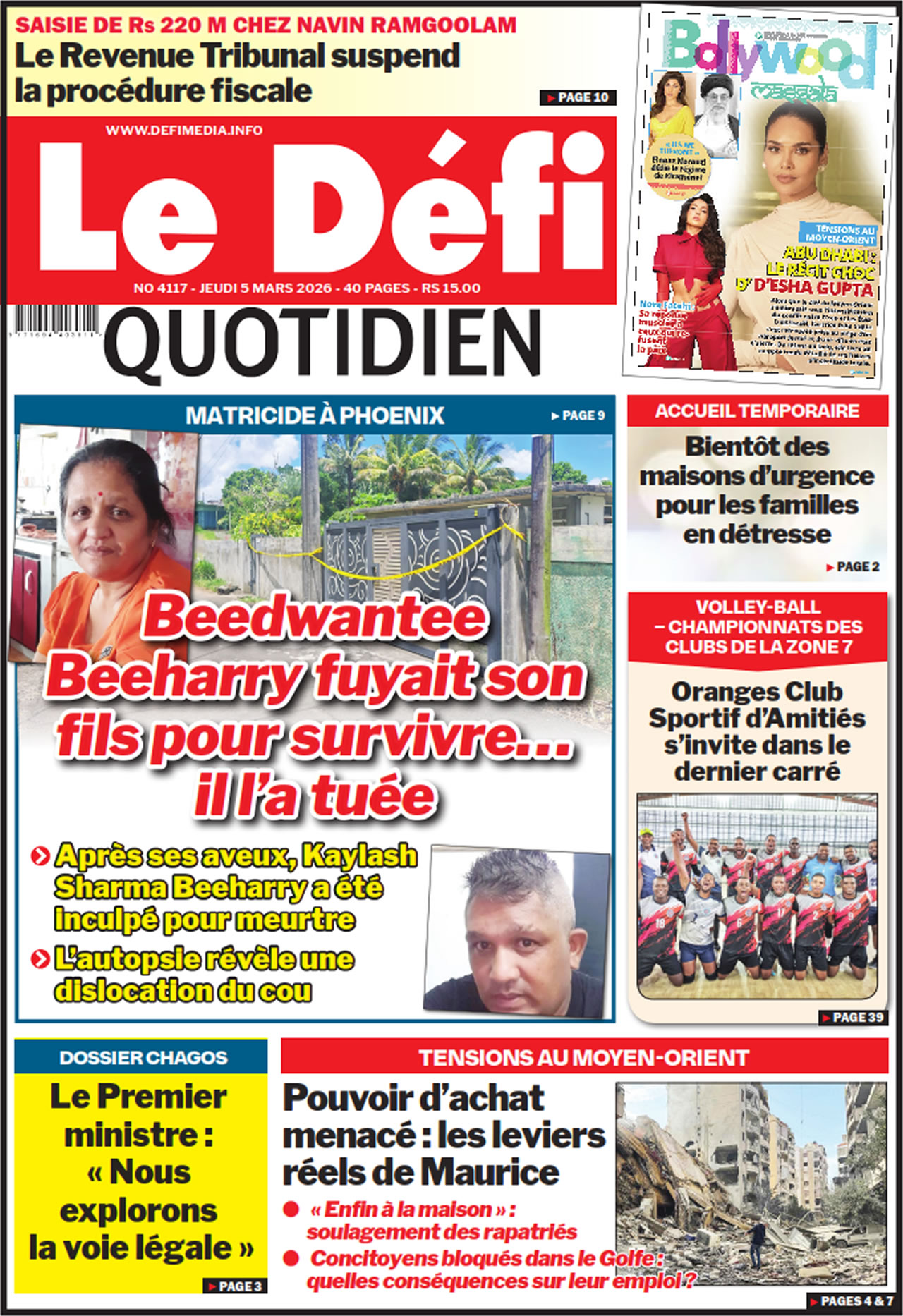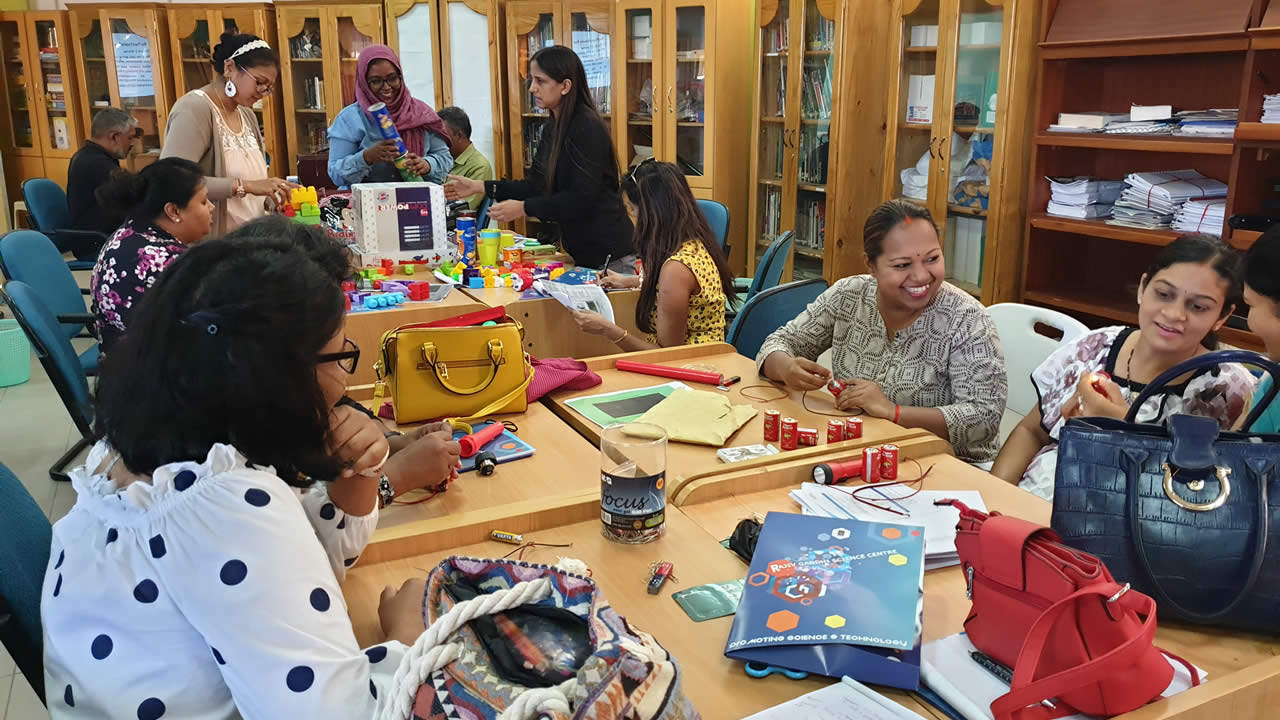
A series of workshops to empower pre-primary and lower primary school teachers to teach science were organised this week by the Rajiv Gandhi Science Centre. Lady (Dr) Sue Dale Tunnicliffe, from University College London, UK, was the facilitator for those workshops, which brought together 80 pre-primary educators and another 80 educators from the primary level.
Teaching science to children at pre-primary and primary levels may seem challenging and daunting for many, but the teaching of this subject matter during the early years of childhood is vital, as children are at an age where they are developing their thinking and learning skills as well as building their knowledge and understanding of the world.
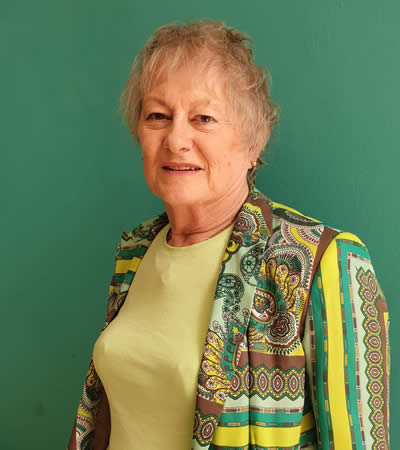
The Educators’ Workshop entitled ‘Teaching Science in the Early Years’, organised from 13th to 17th May by the Rajiv Gandhi Science Centre, Bell Village, in fact provided a hands-on and inquiry-based approach to the teaching of science to the lower primary levels so as to empower teachers to develop more confidence while interacting with their students during science classes.
The official launching of the activities took place on Monday 13th May in the presence of the Acting President of the Republic of Mauritius Mr Barlen Vyapoury, Dr J. Naugah, Chairperson of the RGSC Trust Fund and Dr Sue Dale Tunnicliffe. In her keynote address, Lady (Dr) Tunnicliffe underlined that one of the passable remedies of the challenges facing an increasingly unsustainable world is the development of a scientifically literate community and the emergence of more engineers and other skilled professionals in understanding the issues. She also addressed the fact that there is “often a lack of confidence of the relevant practitioners, early years’ teachers, who do not have confidence in their identity as teachers of science and engineering.”
On the same day, the first one-day workshop took place with forty lower primary teachers from Zones 1 and 2. On Tuesday, those from Zones 3 and 4 attended the workshop while pre-primary school teachers of Zones 1 and 2 attended the one-day workshop on Wednesday and Thursday respectively. The activities on the programme during the workshop aimed to improve the scientific and pedagogical skills of these educators.
The teachers were encouraged to learn that science does not only take place in a lab but that hands-on approach using low cost and no cost materials to demonstrate science concepts is a creative and effective way while teaching science. Moreover, in line with the Nine-Year Continuous Basic Education project of the Ministry of Education, these workshops are also targeted to instill more confidence in the teaching of science at all levels.
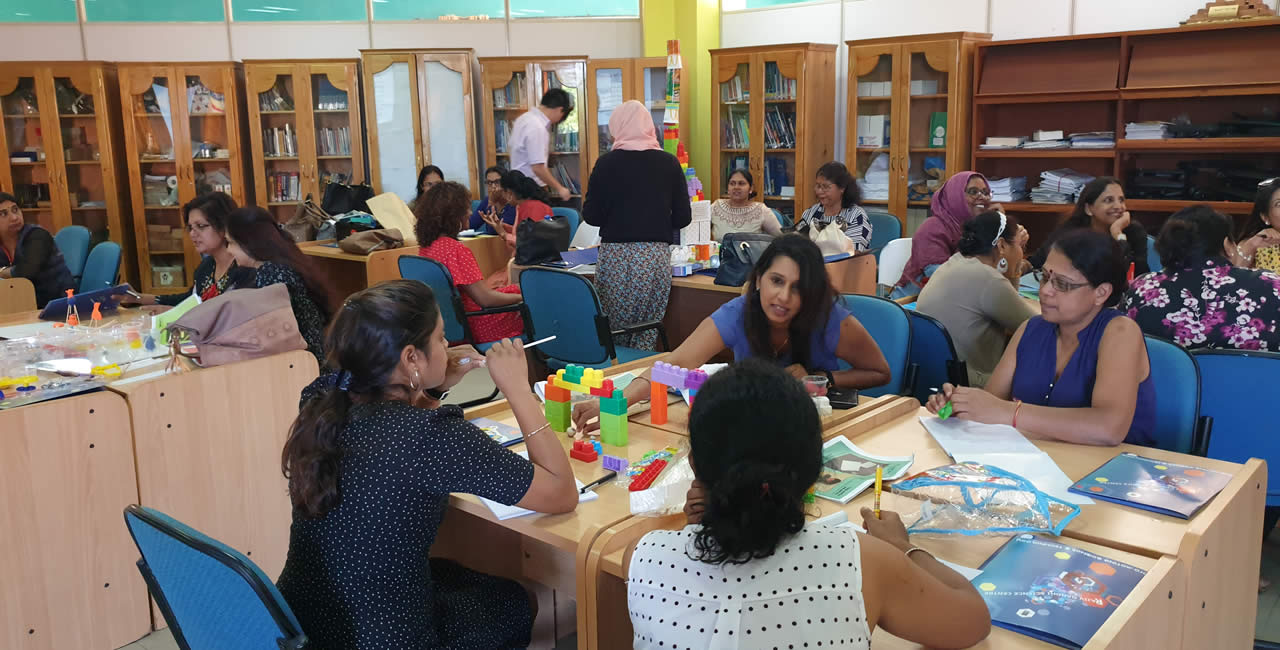
Lady (Dr) Sue Dale Tunnicliffe, researcher and lecturer in science education, who is also Curator of Education at the Zoological Society of London, states that when talking about science, one is talking about the real world. “Science also means engineering, technology and maths. They go together. One of the tragedies of schools is that they teach them in isolation. In primary school and in particularly the early years, you don’t have to do that. The play is the basis of everything.”
She trusts that teaching science at a very early age is crucial, as it is an age where students start learning. “One of my concerns is about the people of the pre-formal school in Mauritius. The childcare people also need to be aware that the play is the beginning of science and engineering. This is a unique initiative for them (educators from the workshop) to start realising that,” she says.
Dr Tunnicliffe underlined that the response from educators during this week has been very positive. “The teachers have done enquiry science with hands-on activities and they had so much fun, as they thought that a workshop was not only about sitting and listening. They have also worked out materials I wrote 30 years ago based on ‘think and do’.”
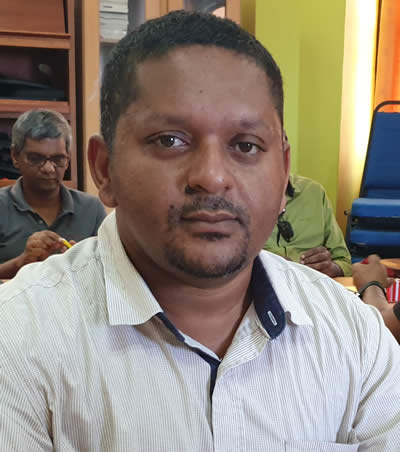 EDUCATORS
EDUCATORS
Jean Daniel Marina : “Children learn better through hands-on activities”
The Grade 1 educator, who has just joined the teaching profession, explains that he has observed how children get bored quickly with the chalk and board technique. “Children learn better through hands-on activities. They need to do things, as it is in their nature instead of just sitting and listening to a teacher. As Dr Tunnicliffe has explained, children use things around them creatively. We can use, for example, toy cars, make paper planes, among others, to teach them about concepts such as gravity and others,” says Jean Daniel Marina. He shares that he is already thinking about various activities to introduce science in his classes. “In maths, I would encourage students to build up cubes to learn different science concepts. I am planning to teach them about scientific vocabulary in our language classes such as English and French.”
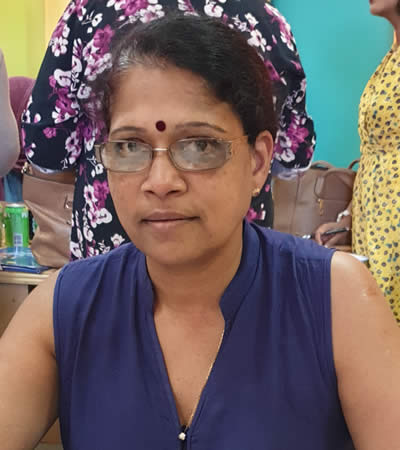
Bhuvanaswari Jankee: “Teaching science to young students is relevant”
With 28 years of experience in the teaching profession, Bhuvanaswari Jankee shares that she finds the workshop very interesting. “This will help us to arouse our children’s interest in science. We have noticed that students are less inclined towards science. Therefore, if we initiate the learning of science as from the primary level, this will certainly arouse their curiosity in the subject. This workshop has provided us with new ideas of how teaching and learning can take place through play, that is, hands-on activities by using regular materials such as cereal boxes, straws, playdough, ice-cream sticks, among others. This will help to develop students’ vital skills as well, such as problem-solving.” She also trusts that learning science will eventually help in protecting our environment. “Nowadays, we are witnessing how our environment is being decimated. Teaching young students’ science is relevant as it concerns everything around us. Learning science will enable our children, who are our future, to protect our environment and our world,” utters the educator.
 J'aime
J'aime














